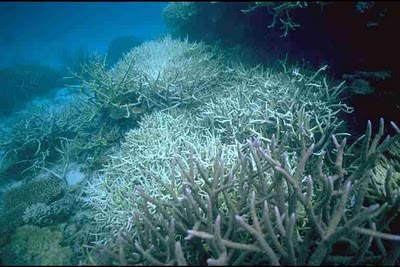Occupying less than one percent of the Earth’s surface and less than two percent of the ocean floor, it would be easy to overlook the significance of coral. In fact, 25% of all marine species depend on coral reefs for survival. In addition, for humans, coral provides shoreline protection, medicine, food, and an incentive for ecotourism to the sum of ~$50 million annually. Coral belong to the phylum Cnideria; closely related to sea anemones and jellyfish. Although they begin their lives as mobile medusa, they spend their adulthood as sessile polyps. Coral secrete calcium carbonate to form a hard exoskeleton …
Coral: Diversity in Danger

